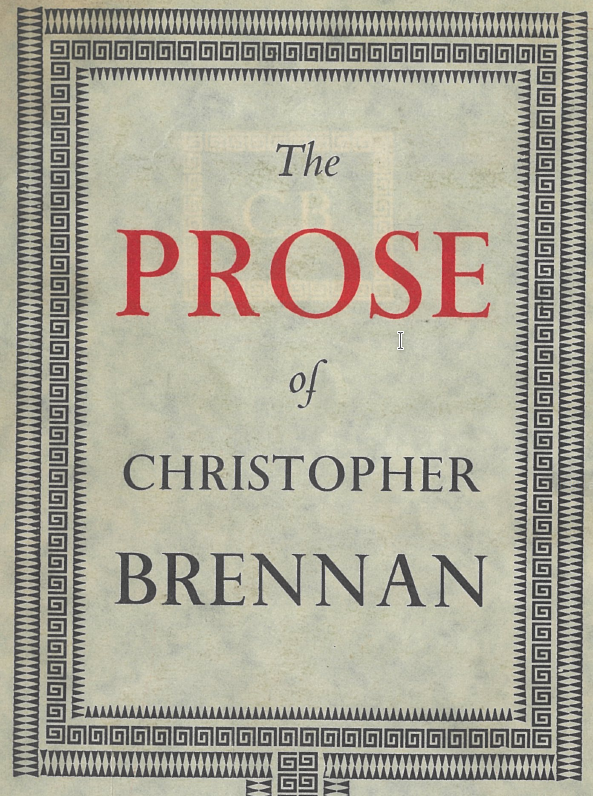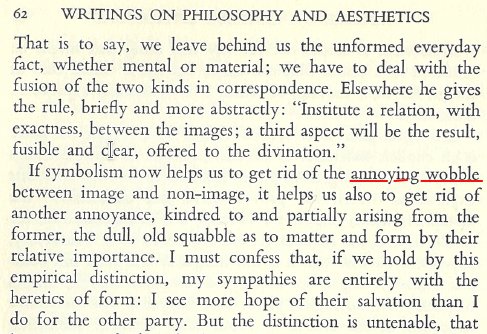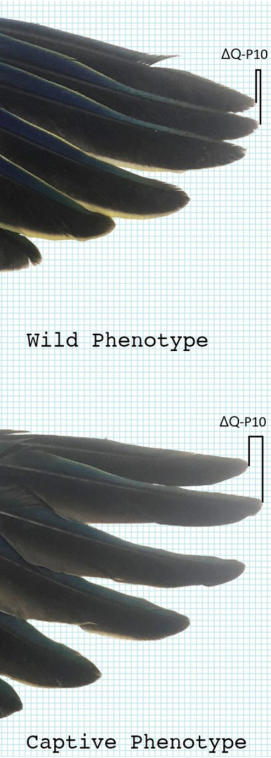I mean what have the symbols ever done for us?


Christopher Brennan calls the gaping issue an ‘annoying wobble between’. I like that, it is less pompous than my Janus dancing the two-faced ratios.
My wife Mona went to ante-natal exercises called Pregnastics here in Hobart, and her classmate, an old friend, Anitra, said that it was ‘really just a wobble and a chat’. Our to-be-born child is now 21 and finishing classics… including Latin. Ulrike likes the grammar, she says. I did not understand this, "you like… —the grammar?"
Ulrike responded saying the lack of living speakers is a bonus. No one can correct you “for real”.
I may have nodded.
Heads up: Symbolism (arts). When this book was produced, in the year of my birth, symbolism was entering it second childhood.

“Heretics of form”… I like that too.
And “Heretics of matter?” They would like me.
Now this post is more spurred by Christopher Brennan’s actual words a couple of pages on from that scanned quote, and not really about symbolism, or philosophy and aesthetics. Well, I do use all that, it is all in frame, it is just not the lecture’s subject matter at hand, though of course, the distinction between matter and form, and which is… —which — is definitely of import… yes, this distinction is wobbled about quite a bit.
A couple of pages later Christopher Brennan words the following①:

And this is the cause of my notice to blog on the topic of symbolism of grammarians. Not that Brennan is a grammarian (I went on to read the whole lecture), it's just the ready-made metaphor of language used as an illustration (of my pet peeve) that reminded me of grammarianism as a topic.
The wobble of pregnancy is a better place to start though… so remember that —but we will now jump to the end, and then feather stuff out into context for future posts.
Thus the moral of the lesson comes second today, and it is this, babies:
if language/grammar is created by babies learning to speak, for the most part, we should perhaps not use grammar/language as a paragon of ontological primacy, as to how things are ‘structured’. Or that things are in fact objects-in-themselves like words in a sentence. At least not as our go-to tool, as a hammer for all seasons. Admittedly we have little choice, but why worship that lack of choice? Why throw it in the… —gap. ②
Babies maintain the language systems. Not grammarians. And since no one knows when.
It all very well to say this word 'grammar' is just used, well, symbolically, because: grammarians are tools. And no, this is not a new thought, using 'grammar' symbolically… —to bridge the… —gap with a wobble instead of chucking our favouritte things and stuff into the void.
The grammar of this design language… the mytho-poetic grammar of that procession…
Without mentioning anything or anyone from the last century, or last millenium even, or so, we can go to the Pyrrhonist practitioner Sextus Empiricus, 3rd or 4th century CE, one of whose works (in Greek) has been more idiomatically titled in English Against the Grammarians③.
It seems Grammarians, like the poor in spirit and conspiracy theorists, are always with us.
Grammarians through the millennia are not thinking of natural languages as being baby-made, but think of them as some fine thing a grammarian approves of. Grammarians basically admired the fine skeletons of muscular warriors who died in their prime. So beautiful, so true. So Roman, so Gothic.
Dead.
And often they boost their language, their ancestor worship, into identity politics. “This shininess of form… this is why our language spoken by the speakers, the real humans, is so special”. And why “they are bar-barians”, and not-speakers, the dumb, the not-humans, look at them howling outside at our beautiful dead men.
If grammars are mostly baby-made, how can this narcissistic attitude have come about and have been encouraged?
Grammars are skeletons without muscle. But often grammar is not used consciously when one is fluent, so… —Grammarians are invert animists who strangely think/hope/assume that the skeleton moves the body. [For starters see Terrence Deacon’s The Symboic Species on this. ④
The more we self-domesticate ourselves and our worlds the more we worship our domestications as wildly successful.

What we forget, as quickly as we forget the years we were babies ourselves, is that the grace of "grammar" by which we humanise or domesticate ourselves as special, is a practice by which we seek truth in the bones alone, and so lay waste to the muscles, and even reject the humble pie of our introspection. All in order to honour the glamour of the bones of the dead because we fluent speakers of grammar can understand them…. —and they cannot disagree.
Our only tool is a hammer we have made of a heavy bone ready to hand. A rule of thumb. Many of us still live in the bone age of domestication which began as we stepped out of Eden. Which as I suggest — Grammarians are always with us — is likely to always be available as a pathway, a preference, an inclination for us… —because babies acquire languages and therefore babies ‘structure’ the form of languages in learning them. And babies are the original special, we remember that even as we forget the lessons that made us special⑤.
Grammarians are a sign of our evolutionary success rashly rushed to serve other ends.
A short cut that has become a pothole.
If it was only restricted to grammarians and their shock-jocks, it might be easier to move on.
However, there is much of an anthropomorphic skeletal invert animism (in our use of grammar and language) to define or uniform in a grammar and syntax…. —a ready-made metaphor to give form to any ‘structure’ used in explanation, or in design.
Both kinds of structuralism fall prey to this. The ① dreambook (including both the simple version and the flexible floating symbols as a psycho-analytical gloss, the meta-dreambook, the truck chassis) and the ② Sassurean co-wearing of parts systemically co-evolving (in a too-often closed or shut-off ecology). The second (the folded sheets of steel where the form is the chassis) should be better at not falling prey, i.e. falling down to worship the bones, but modernity, like the future is, here, but just not evenly distributed yet.-.
Perhaps, to get back the Brennan's lecture on Symbolism for a moment, the elitist symbolist is just using a wobbly pre-Freudian dreambook as an autarkist, a poetic sovereign citizen perhaps, if not a genius… —in order to produce (style-is-the-means-of-production afterall) 'personally coherent' poetry, eschewing the gloss of, say, psycho-analysis to pin down the indiosyncracies (particular to you, or me, or our parents, the turtles all the way down. Und so weiter.)Once we realise babies make those… —structures as they learn a language, the grammarian’s bones can not remain un-rattled.
I.E. if the selective bottleneck is someone, usually an infant, learning the language, we are released from the grammarian’s cage of bones (as intention/ as design) and if we let it inform our teaching, we will find the world will remain as it was before. In the beginning was not the word, but the world is spoken into 'being'.
Grammarians fear the end of the world lies in the bones getting out of order. Forgetful that the skeleton is dead, they chicken little the splintered teeth spat into their faces as “the sky is falling”.
It is anxiety about the world ending, and symbolicaly reading omens into grammatical mistakes that can blind us to the fact that babies make the ‘natural languages’ we speak. Grammarians are just would-be emperors trying to make an empires of safety and security out of our ability, our practice, to speak. Using that outcome of their (grammarian) world-building urge to ‘structure’ things is a mistake (that we can learn from).
Why, because that is why we should. We have an urge to organise the world about us, the self is not just there to self, but to busy-body the world. That is how we survive.
Of course, when teaching, it is easier to remember and practise and model & teach what one is teaching, and knows too well, but the grammarian is a bad teacher who learns nothing else along the way. Or has forgotten it because it is too long ago, in infancy. They have forgotten they can learn, & how they learnt as they stare at the beautiful bones of our ancestors.
Or times were such there was not enough time to learn the pitfalls of a short cut, a prejudice, a discrimination… survival also grinds us.
①A. R. Chisholm and J. J. Quinn, eds. The Prose of Christopher Brennan. Sydney: Angus & Robertson, 1965. Pages scanned were from 'Symbolism in nineteenth century literature : six lectures June-July 1944. I The Logic of Symbolism.’ pages 48-67
② Chater, Nick, and Morten H. Christiansen, ‘Language Acquisition Meets Language Evolution’, Cognitive Science, 34.7 (2010), 1131–57 <https://doi.org/10.1111/j.1551-6709.2009.01049.x>
③Hankey, Wayne, review of Review of: Sextus Empiricus, Against the Grammarians (Adversos Mathematicos I). Clarendon Later Ancient Philosophy, by Empiricus Sextus and David L. Blank, Bryn Mawr Classical Review <https://bmcr.brynmawr.edu/1999/1999.10.33> [accessed 20 March 2023]
④ Deacon, T., The Symbolic Species: The Co-Evolution of Language and the Human Brain (London: Penguin, 1997)
⑤Custodero, Lori, ‘Making Sense of “Making Special”: Art and Intimacy In Musical Lives and Educational Practice’, International Journal of Education & the Arts, 6.15 (2005) <http://www.ijea.org/v6n15/>
This is a version of the orginal post in March 2023 at substack.com
